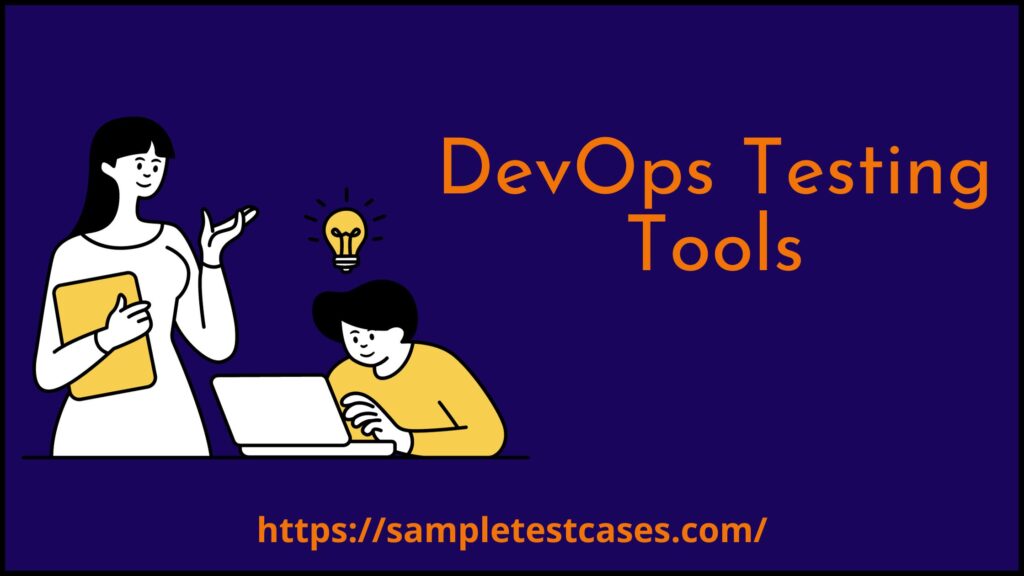In this article, we will explore a range of popular DevOps testing tools that empower organizations to achieve seamless integration, faster delivery, and continuous quality improvement. In the realm of DevOps, where the focus is on fast and continuous delivery of software, testing plays a pivotal role in ensuring the quality and reliability of applications. DevOps testing tools are essential components of the DevOps ecosystem, facilitating the automation, monitoring, and management of tests throughout the software development and deployment lifecycle.
DevOps Testing Tools
1. Selenium
Selenium is a widely used open-source tool for automating web browsers. It supports multiple programming languages and browsers, making it a preferred choice for automated functional testing of web applications. Selenium WebDriver enables developers and testers to write scripts to interact with web elements, automate user interactions, and perform cross-browser testing.
2. Jenkins
Jenkins is an open-source automation server that supports building, deploying, and automating any project. It plays a crucial role in DevOps by enabling the automation of the entire software delivery pipeline. Jenkins integrates seamlessly with various testing tools, allowing for automated testing and continuous integration (CI).
3. JIRA
JIRA by Atlassian is a widely used issue and project tracking tool that supports agile software development practices. It offers robust features for test management, bug tracking, and workflow automation, making it an essential tool for managing and tracking testing efforts in DevOps projects.
4. Postman
Postman is a popular API testing tool that simplifies the process of testing RESTful APIs. It provides a user-friendly interface for sending requests, validating responses, and automating API testing. Postman collections allow you to organize and run API tests efficiently.
5. TestRail
TestRail is a test management tool that enables teams to organize test cases, plan test runs, and track test results effectively. It integrates seamlessly with popular testing frameworks and tools, making it a valuable asset for test case management and reporting in DevOps.
6. Travis CI
Travis CI is a cloud-based continuous integration and continuous deployment (CI/CD) platform that automates building, testing, and deploying code changes. It supports various programming languages and integrates with version control systems, making it suitable for automating test runs in the DevOps pipeline.
7. Gatling
Gatling is an open-source load testing tool designed for DevOps and continuous performance testing. It allows testers and developers to simulate virtual users and analyze the performance of web applications and APIs under load.
8. SonarQube
SonarQube is a continuous code quality inspection tool that integrates seamlessly with CI/CD pipelines. It assesses code quality, detects code smells, and identifies security vulnerabilities, helping teams maintain code health and reliability.
9. New Relic
New Relic is an application performance monitoring (APM) tool that provides deep insights into application performance, infrastructure, and user experience. It helps DevOps teams identify bottlenecks, troubleshoot issues, and optimize application performance.
10. GitLab CI/CD
GitLab CI/CD is an integrated CI/CD platform offered by GitLab. It enables organizations to automate the testing, building, and deployment of applications directly from their Git repositories. GitLab CI/CD simplifies the implementation of DevOps practices.
11. Kubernetes
Kubernetes is an open-source container orchestration platform that automates the deployment, scaling, and management of containerized applications. While not a testing tool per se, Kubernetes facilitates the deployment and scaling of applications, making it an essential component of the DevOps ecosystem.
12. Docker
In Docker is a containerization platform that allows developers to package applications and their dependencies into containers. Docker containers provide a consistent environment for testing and deployment, enhancing reproducibility and simplifying the management of application dependencies.
Conclusion
These DevOps testing tools empower organizations to implement effective testing strategies, streamline the software delivery pipeline, and maintain high-quality software applications. By incorporating these tools into their DevOps practices, teams can achieve faster release cycles, improved collaboration, and continuous quality improvement in their software development projects.
